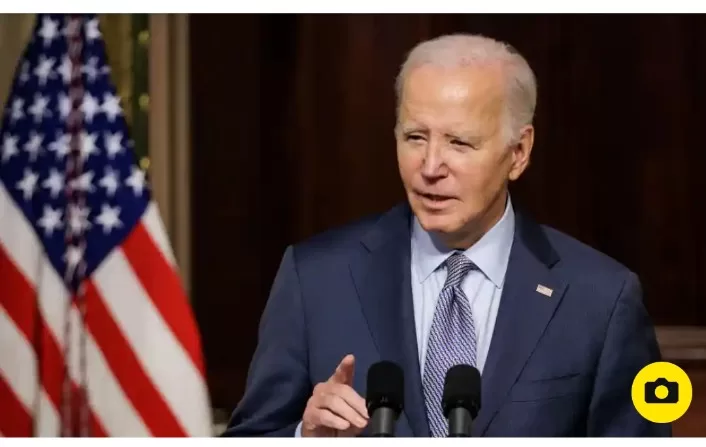President Joe Biden is encountering escalating pressure from his fellow Democrats, including five senators seeking re-election in 2024, to reconsider the release of $6 billion in Iranian oil revenue, which was part of a prisoner exchange agreement. This call for reevaluation comes in the wake of accusations that Iran played a pivotal role in the recent deadly attack on Israel by the Palestinian group Hamas.
In an intriguing political development, five Democratic senators, who face challenging re-election battles next year, have aligned with Republican demands, urging President Biden to essentially backtrack on the agreement that facilitated the release of five Americans who were held captive by Iran. Their condition for maintaining the agreement is that there must be credible evidence proving that Iran’s theocratic regime was not involved in the devastating assault on Israel that claimed the lives of over 1,000 Israelis.
This chorus of voices calling for a reconsideration of the Iranian oil funds release unfolds as U.S. intelligence sources have attempted to temper speculation regarding Iran’s direct involvement. While the White House has accused Tehran of being “broadly complicit” due to its longstanding financial and logistical support for Hamas, multiple intelligence reports have indicated that Iran’s leadership had no foreknowledge of the destructive onslaught that emanated from Gaza, suggesting that it took them by surprise.
Despite these assessments, some Democrats facing electoral challenges from Republicans in 2024 remain unconvinced.
Senator Tammy Baldwin of Wisconsin, for example, asserted, “Until I have complete confidence that Iran was not involved in these brutal terrorist attacks on the Israeli people, the United States should freeze the $6 billion in Iranian assets.” This sentiment has been echoed by four other Democratic senators: Joe Manchin of West Virginia, Jon Tester of Montana, Jacky Rosen of Nevada, and Bob Casey of Pennsylvania.
Senator Manchin, a known moderate who has occasionally aligned with Republican positions, expressed his reservations, stating, “I was not in favor of the initial $6 billion transfer. We should unquestionably freeze these Iranian assets while simultaneously considering additional sanctions.”
Last month’s release of Iranian oil revenues, originally frozen by the Trump administration in 2019 due to sanctions imposed as part of its “maximum pressure” policy toward Tehran, had already provoked fierce criticism from Republicans. They contended that it projected weakness and opened the door for potential diversion of funds toward supporting terrorism.
After the Hamas attack over the weekend, former President Donald Trump, a leading contender for the 2024 Republican nomination, intensified the criticism, inaccurately characterizing the unfrozen funds as “U.S. taxpayers’ dollars” and insinuating that they had aided the Hamas assault. The White House promptly dismissed these claims as “unfounded” and “misinformation.”
Administration officials clarified that the funds, released to a bank account in Qatar, have remained untouched since their unfreezing. They were released with the stipulation that they be exclusively employed for humanitarian purposes, including the purchase of medicines and medical equipment.
U.S. Treasury Secretary Janet Yellen, while speaking at the annual meetings of the International Monetary Fund and the World Bank in Marrakesh, Morocco, indicated that the administration could reverse its decision to release the funds if evidence emerged implicating Iran in the recent events.
Notably, Republican skepticism persists despite the notes of caution from intelligence reports about direct Iranian involvement, aligning with the sentiments expressed by certain quarters in Israel. Senators Don Bacon of Nebraska and Tim Scott of South Carolina, the latter being a presidential candidate for the Republican nomination, have accused President Biden of downplaying Iran’s role, with Scott even suggesting that the President has “blood on his hands.”




